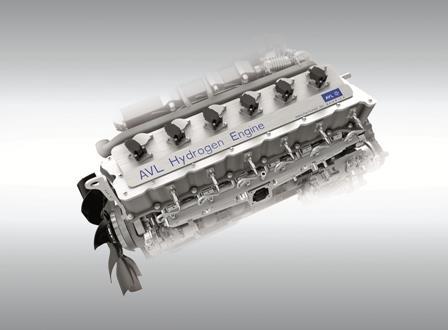
Austrian powertrain specialist AVL is working on an internal combustion engine powered by hydrogen designed to provide heavy trucks with low carbon propulsion at a fraction of the cost of fuel cells.
In a press statement, AVL said: “The development project’s target is to increase both the efficiency potential of multi-port and a direct injected hydrogen engine concept for direct propulsion of a commercial vehicle with an existing standard powertrain. AVL used a 12.8 litre natural gas engine for the basis of development and set its performance target at 350kW [470hp].”
AVL is also working on fuels cells and recently signed a partnership agreement with Ceres Power Holdings to develop solid oxide fuel cell (SOFC) powertrains for light duty commercial vehicles.
Ceres will provide fuel cell and stack technology while AVL will contribute application, integration and system know-how.
“Together, AVL and Ceres will extend their market reach, in particular by Ceres benefiting from the AVL’s global engineering presence,” AVL said.
Phil Caldwell, chief executive of Ceres, added: “The potential for Ceres’ technology to play a role in the decarbonisation of the global energy system is substantial, and this collaboration with AVL is a significant step in our strategy to accelerate its adoption in an expanded number of applications and markets.”
SOFC technology can only be used as a range extender in battery electric trucks and is aimed at light commercials rather than heavy duty vehicles. Various fuels can be used including hydrogen, natural gas (CNG or LNG), methanol, ethanol, ammonia and even petrol or diesel – though these latter two fuels are not the preferred option for cutting carbon emissions.
There will be a demonstration of a light duty truck from a major truck builder using an LNG-powered SOFC range extender in late 2021.
AVL claims to be the world’s largest independent company for the development of powertrain systems with more 10,400 employees worldwide and 2018 sales revenues of €1.75bn (£1.53bn).













